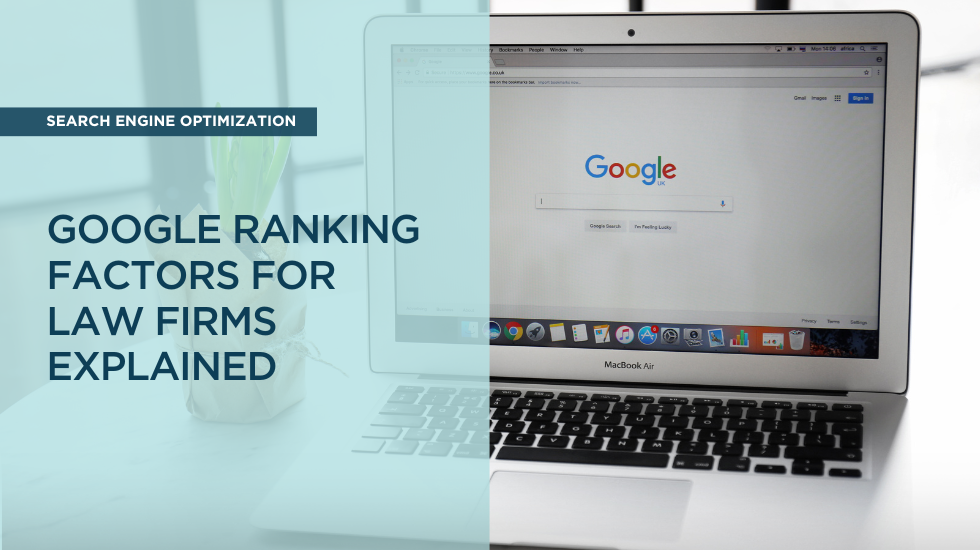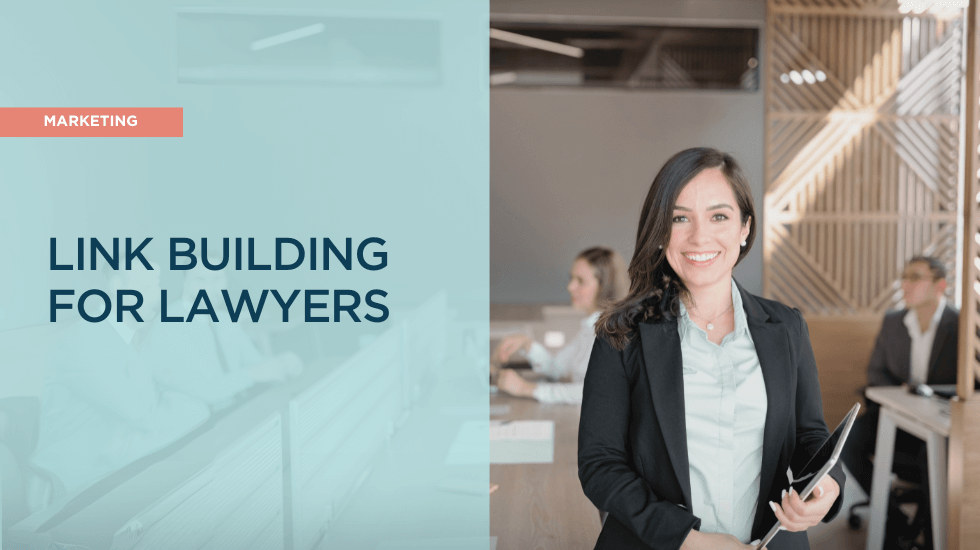The phrase “content is king” has been the subject of many blogs, webinars, TED Talks, and even memes since it was uttered by Microsoft founder Bill Gates in 1996.
However, we’re here to respectfully challenge Mr. Gates. Yes, content is an essential part of your digital presence, and it plays an enormous role in your SEO strategy.
But does it have the kingly power to put your law firm’s website at the top of Google rankings?
It’s a lot more nuanced than that. Content has the power to attract people to your law firm’s website and keep them there. But content alone isn’t enough to generate strong Google ranking factors for attorneys.
If you want to create a robust online presence that attracts new clients, you need to focus on more than just your content and closely consider:
- User intent
- User experience
- Internal linking structure
- Backlinks
- Mobile optimization
User intent
You already know that your website content needs to be unique, compelling, fresh, and relevant. (We know—that alone can be a lot to achieve!)
Yet, the main way to drive more traffic to your website is to understand search intent. In other words, your content needs to reflect what people are searching for and the words they’re using to conduct those searches. Your firm can have the most captivating content in the world, but if it doesn’t capture what your prospective audience is looking for, it won’t help your site rank.
There are three general types of searches that your audience might conduct: informational, navigational, and transactional.
Informational searches
The user simply wants information about legal issues in general to further educate themselves on specific topics. Types of questions they might be asking include:
- What are the steps involved in filing for divorce in Georgia?
- How do I update my estate plan?
- What are the requirements for starting an LLC?
Navigational searches
The user is looking for a particular website (hopefully your website!) to locate a product or (in the case of law firms) a service. These types of searches might look like:
- Personal injury law firm near me
- Estate planning Kansas City
- Divorce attorney in New Jersey
Transactional searches
Transactional search queries are used to complete a transaction, involving phrases like “buy” and “order” or “hire.” They are referred to as “Do” search queries as users are looking to make a decision. Examples of these include:
- Free divorce attorney consult
- Best lawyer in Oklahoma City
- Hire a California real estate attorney
Not sure where to start with search intent? An experienced digital marketing team can help your firm evaluate its ideal audience and keywords options and turn this information into content that will speak to its needs.
User experience
A potential client has found your site—amazing! But what’s their experience going to be interacting with your site?
Ask yourself: Is your site going to be easy to navigate? Will it load quickly? Will there be accessibility issues? Will your site be visually cohesive? Will information be where they expect it to be? Will they be able to contact you?
We know. That’s so many questions, and it’s not even a comprehensive list. But all these little details make up the user experience (UX).
Just how important is UX to your Google rankings, though? It’s a major component. Specifically, sites that are…
- Fast loading
- Mobile-friendly
- Visually stable (meaning consistent)
- Easy to navigate
… position themselves to rank higher in Google searches than others.
Internal links
Internal links are also vital when it comes to determining how to improve Google ranking factors for law firms. Do you know what happens when a user clicks on a link, and it is “broken”? The law firm loses its credibility and the user bounces after one page. This is what we are trying to avoid!
Here is what you should remember when it comes to building your internal links on your website:
- No broken links!
- Link to credible websites or pages
- Know the location of the links within your content
- Having effective “anchor text” and content surrounding the anchor text
Internal links need to be monitored because, as we mentioned above, a broken link will break your credibility. But you can’t just focus on linking out to other websites—what about the backlinks that drive users to you?
Backlinks
A backlink is a link from an outside website that connects back to your website, and they’re imperative to increasing your Google ranking.
This is because when a credible website links back to your site, Google determines that other sites trust your content and your authority in the legal world In fact, the websites that rank highest on Google have nearly four more backlinks than their competitors!
This means your backlinks will improve your visibility and get more visitors to your site. How do you secure backlinks? Here are some tips:
- Don’t be afraid to ask! Find websites that are credible in your legal industry and request that they link to your website.
- Write guest blogs on relevant and credible websites, which should automatically earn you a backlink.
- Offer other types of useful content, such as legal briefs, white papers, or case studies, which other websites will then backlink to your website.
Mobile use
Google has moved from a desktop-first approach to indexing sites to a mobile-first approach. Statista found that mobile devices accounted for 63% of organic search engine visits as of the fourth quarter of 2021. This means the mobile version of your website is not just optional for indexing and ranking—it is mission-critical.
You can test whether your website is mobile-friendly on Google here and then take the necessary steps to ensure your website has the following:
- Responsive design: Use responsive design on your website to adapt it to different screen sizes and orientations. This can be done with CSS media queries that adjust the layout based on the device’s screen size.
- Optimized images: Optimize images for mobile by using appropriate file formats, compressing for smaller size, and using responsive images based on screen resolution.
- Touch-friendly navigation: Optimize website navigation for touchscreens with larger buttons, easy-to-tap links, enough space between links to prevent accidental taps, and a sticky/fixed navigation bar for easy access to important links.
- Fast load times: Optimize your website for speed by minimizing HTTP requests, using browser caching, compressing CSS and JavaScript files, and using a content delivery network (CDN) to deliver content faster to users.
We know this can seem… technical. If you’re struggling with mobile-friendliness, it’s best to work with an experienced digital marketing agency so you can get the best results and the best return on your investment.
Let FocusWorks optimize your site
From crafting blog content to giving your website an entire mobile overhaul, it takes quite a bit of work to ensure you’re meeting the Google ranking factors for law firms.
If you’re feeling overwhelmed and don’t know where to begin, FocusWorks Marketing specializes in writing content, SEO, and web development—specifically for law firms.
Contact us today to discuss how we can boost your law firm’s Google ranking.



